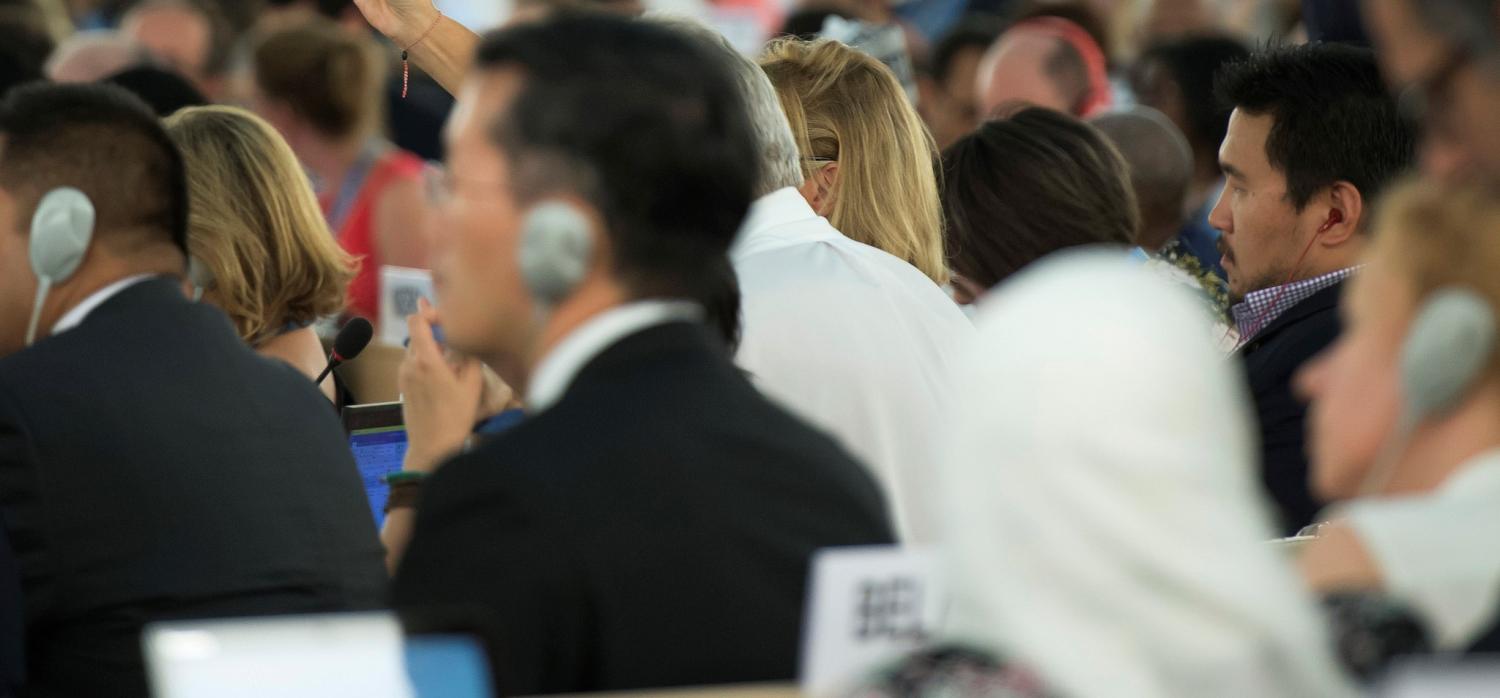The 35th session of the UN Human Rights Council currently underway in Geneva is poised to adopt the Council’s second resolution on 'Youth and Human Rights'. Australia has been vocal in efforts to strengthen recommendations for facilitating youth access to human rights and participation in global human rights processes such as those conducted by the Human Rights Council. Along with Denmark, Canada and New Zealand, Australia is beginning to recognise the importance of youth engagement in the implementation of human rights.
The tangible outcome of this resolution will be a request for the UN High Commissioner for Human Rights to conduct a study on the implementation of rights with regards to young people. This study will focus on the barriers, best practices and outcomes for society of youth enjoyment of their rights. Why does this matter to Australia and the rest of the world?
First, universal human rights are just that – they encompass youth as rights’ bearers. Second, youth are the ‘sustainable development generation’. Should bold ambitions for human rights like those underpinning the Sustainable Development Goals have any chance of progressing, they need youth leadership. After all, there are currently 1.8 billion young people worldwide, making this the largest generation of youth ever. They will be the ones that take the 2030 Agenda and others like it forward.
However, according to UN statistics, the rights of youths are uniquely under threat.
Young people are three times more likely to be unemployed than adults, and working in more precarious and unstable conditions. Young women and girls are disproportionately affected by sexual violence, and complications in pregnancy and childbirth (many of which are preventable) is the second-biggest killer of adolescent girls. The UN also reports that adolescents were the only age group for whom deaths due to AIDS has actually increased (by about 50%) in the past fifteen years, making the disease the second biggest killer after road accidents.
To improve youth participation in the governance of human rights, conceptual and structural barriers need to be removed and groundwork that facilitates meaningful participation must be introduced. This is where UN member states, including Australia, step in.
A key barrier is conceptual: we need to change the way we think about young people. Far from seeing youth as a potential problem (or a bulge or threat) that needs solutions, youth must be reconceptualised as potential solutions to existing problems. This requires empowering them as human rights defenders rather than mere recipients.
Making decisions for young people is therefore insufficient. The UN’s appointment this week of its second Special Envoy on Youth is a step in acknowledging the unique perspectives, knowledge and visions for the future that young people have. As the President of the HRC stated, the ‘skills, energy and ideals of young people (are) vital for strengthening democratic institutions and building inclusive societies without discrimination.’
The second barrier is overcoming the shrinking democratic spaces open to young people. Protection of freedoms of opinion and expression, association and peaceful assembly are necessary precursors to youth participation. This includes creating spaces for young people to speak about their human rights, or lack thereof.
UN member states can lead in facilitating youth participation in human rights. The Australian Government has for the past two years supported a Youth Forum at the Human Rights Council which, alongside the HRC hearings, provides young people with a platform to agitate for their voices to be heard on human rights issues. This year, the Forum issued a declaration in which young people outlined meaningful participation in the human rights system as requiring a number of straightforward steps: adequate resources to support youth participation; a systematic approach to including youth representation in delegations of member states; consultation with youth in processes such as the Universal Periodic Review; the appointment of a Special Rapporteur on the Human Rights of Youth; and the creation of a Global Youth Charter.
What might UN member states get out of committing to an inter-generational and sustainable approach to human rights governance? It’s simple: a passionate, educated, skilled and experienced generation capable and committed to tackling the impasses we face in moving the human rights agenda forward; and more inclusive, deliberative, innovative and stable societies.
Though activities like the Youth Forum, young people have demonstrated their contribution to human rights: they can raise awareness about their own rights, engage with the political process to maintain the accountability of their governments on human rights agendas, and to lead the human rights agenda into the future.
Ultimately the resolution that will be adopted by the Human Rights Council this session will be weak. Despite interventions made by Australia and others, it will most likely fail to highlight specifically marginalised youth groups such as women, ethnic and sexual minorities, migrant youth, youth with disabilities, and indigenous youth. It will also fail to provide robust language and frameworks for meaningful participation of youth. However, Australia’s commitment to the agenda means this is not the end of this conversation.
